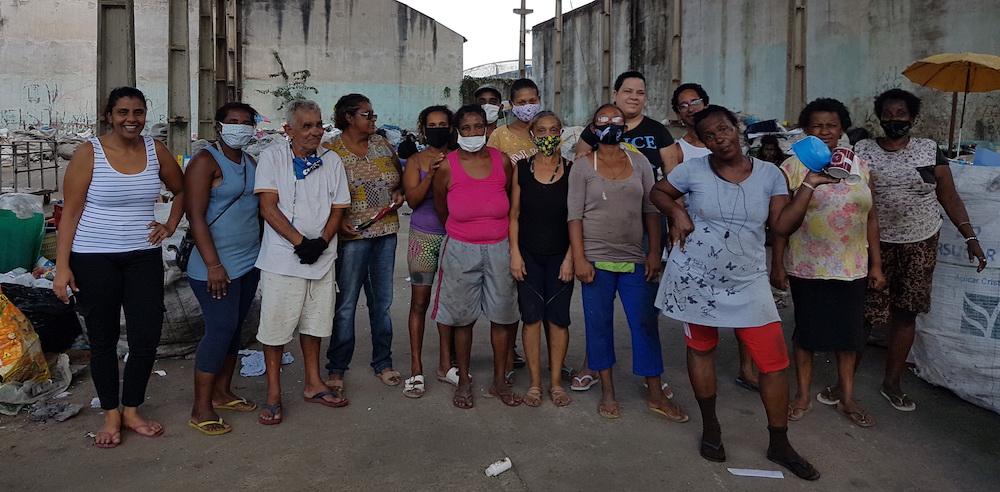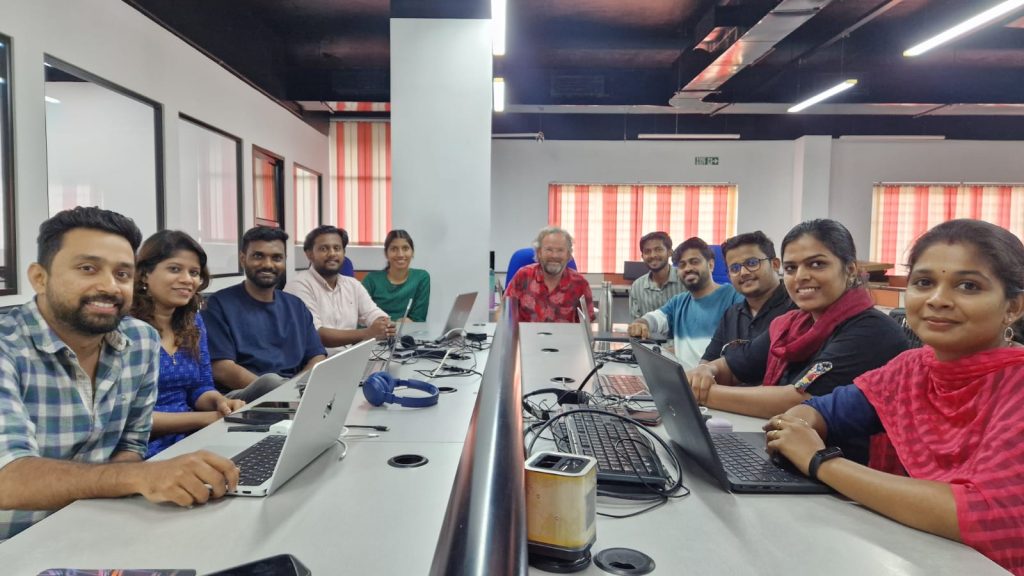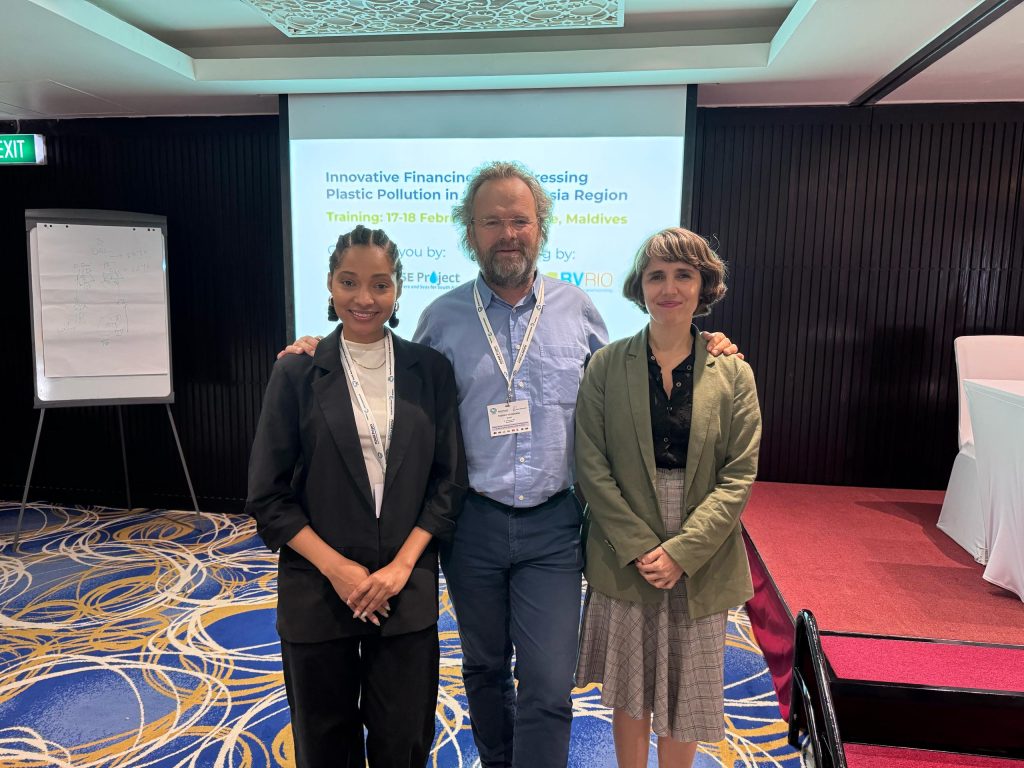Iara Meiri de Melo Moura Silva, 40, mother of two, began working in the recycling market over 20 years ago with her mother, who came to Rio de Janeiro from the Northeast at 17 years old. Iara is one of the female leaders in waste collector cooperatives in the State of Rio de Janeiro, in the Beija Flor Cooperative. Behind the love for the profession, there is always a story of great strength and inspiration from the family that, in general, works unitedly, teaching the craft of collecting and sorting to other generations.
Working in recycling is not enough to ensure the livelihood of their children. Therefore, Iara reconciles her work in the cooperative with her profession as a hairdresser. With the lack of supply of new materials and the challenges that are enormous, many young people do not want to stay in the market. Iara’s daughter, Thaismara de Melo Moura Silva, 23, is the president of the Beija Flor Cooperative and her 18-year-old son is studying Information Technology.

Many women find in the cooperative a space for welcoming and learning that goes far beyond recycling work. « There are women who started together with me at Beija Flor Cooperative and we have become one big family. We also talk about sex education and guidance about children’s education », comments Iara about the strengthening of solidarity and sorority, so important among women nowadays.
At Beija Flor Cooperative, everyone is connected with the same goal, which is to see people grow. She portrays the challenges like scarcity of material and the value of tons of plastic. « Here, we receive 1 to 2 trucks a week of selective collection from Comlurb, but more is needed, » she emphasised. Iara vents by recounting the difficulties about the market, especially, during the pandemic. « Large companies should be penalised if they do not take care of reverse logistics. Many industrial areas with large firms don’t want to donate the material and we continue by collaborating with various middlemen. »
Staying in the recycling market requires a lot of unity of the waste collectors groups and engagement of the professionals in the National Movement of Waste Pickers, in the fight to obtain licenses from FEEMA, etc. « Sorting the materials depends on a lot of observation of the waste collectors on a daily basis. My great challenge is to structure the cooperative in order to grow, to buy a truck, to be able to increase the number of members », she concludes.




